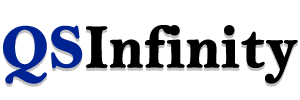Apparel and Fashion
Our Apparel Manufacturing ERP Software serves as a comprehensive solution for streamlining every aspect of your factory's operations. Whether it's managing sampling processes, overseeing production, handling inventory, or facilitating exports, our software covers it all.
By leveraging our industry-specific modules tailored for apparel management, you can effectively boost your profits by optimizing workflows, reducing waste, and maximizing efficiency. Moreover, our software enables you to cut costs by identifying areas of improvement, streamlining processes, and minimizing operational expenses.
Maintaining top-notch product quality is paramount in the apparel industry, and our ERP software helps you achieve just that. With robust quality control features and real-time monitoring capabilities, you can ensure consistent and superior product quality throughout the manufacturing process.
Overall, QSInfinity Apparel Manufacturing ERP Software is your ultimate partner in driving profitability, efficiency, and competitiveness in the apparel manufacturing industry.

Module Highlights
Pre-Sales
The Pre-Sales module facilitates activities before finalizing a sale, including lead management, quotation generation, and proposal submissions. It helps in identifying potential customers, understanding their requirements, and providing them with relevant information to drive sales conversions.
Buyer Order
Time & Action
Material Requirement Planning (MRP)
Budget, Procurement & Approval
Inventory & Production Management
Production Management
Production Planning & Controls
Management Information Systems (MIS)
Sales Order Export Documentation
HRMS
Features
Browser-Based Accessibility
With browser-based access, users can log in to the ERP system from any device with an internet connection, providing flexibility and convenience for accessing critical information and performing tasks on the go.
Workflow-Powered Collaboration
The ERP system is workflow-driven, meaning it automates and streamlines processes across departments, promoting collaboration and communication. This ensures that tasks are completed efficiently and in a timely manner, reducing bottlenecks and improving overall productivity.
Flexible Approval Workflow
Organizations can customize approval workflows to suit their specific requirements, accommodating multi-level approvals and complex processes. This flexibility ensures that the ERP system aligns with the organization's unique business processes and hierarchy.
Order Flow Visibility
Users can easily track the flow of orders within the system, from initial creation to final delivery. This promotes accountability and transparency, as stakeholders can monitor the progress of orders and identify any delays or issues that may arise.
Real-time Data Availability
The ERP system provides real-time access to data, allowing users to make informed decisions based on up-to-date information. This enhances responsiveness and agility, enabling organizations to adapt quickly to changing market conditions and customer demands.
Procurement Budget Management
Organizations can define and implement procurement budgets for each order, ensuring that spending remains within predefined limits. This feature helps control costs and prevents overspending, contributing to improved financial management and profitability.
Scalability
Whether a small, single-location business or a large, geographically diverse enterprise, the ERP system is adaptable to various organizational sizes and structures. This scalability ensures that the system can grow with the organization and meet its evolving needs.
Buyer Approval Tracking
The ERP system tracks all buyer approvals required for orders, along with records of submissions made. This helps maintain compliance with buyer requirements and ensures that orders are processed efficiently and accurately.
Financial Impact Reflection
Changes in specifications and business transactions are reflected in real-time in the system's financial records. This ensures that financial data is accurate and up-to-date, facilitating better financial analysis and decision-making.
Order Profitability Focus
The ERP system places a strong emphasis on order profitability, providing tools and features to analyze and optimize profitability at the order level. This helps organizations identify areas for cost savings and revenue growth, ultimately improving overall profitability.
Budget Management
Set and manage budgets for inpidual orders, ensuring fiscal discipline and efficient resource allocation.
Business Intelligence
Access advanced analytics and reporting tools
Gain insights into performance metrics and identify areas for improvement
Benefits
Enhanced Accessibility and Flexibility
Users can access the ERP system from anywhere at any time, improving productivity and responsiveness. This flexibility enables employees to work remotely or while traveling, ensuring continuity of operations.
Improved Collaboration and Efficiency
Customization and Adaptability
Real-time Visibility and Decision-making
Cost Control and Budget Management
Transparency and Compliance
Profitability Analysis
Overall, QSInfinity Apparel Manufacturing ERP offers a comprehensive solution to streamline operations, control costs, and drive profitability for apparel manufacturers. Its features and benefits empower organizations to optimize their processes, enhance collaboration, and achieve their business goals effectively.
